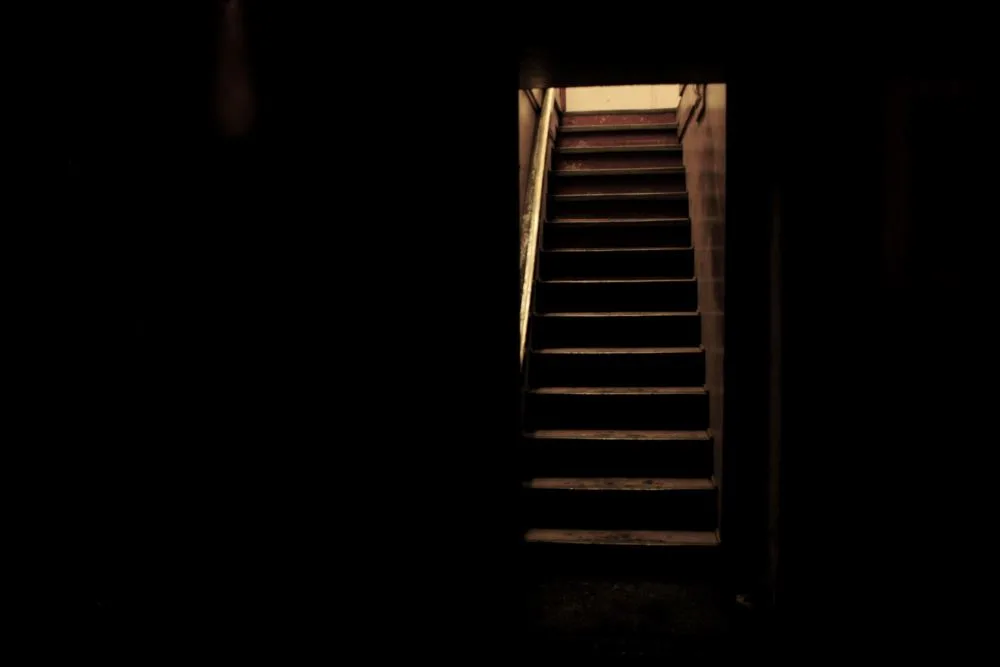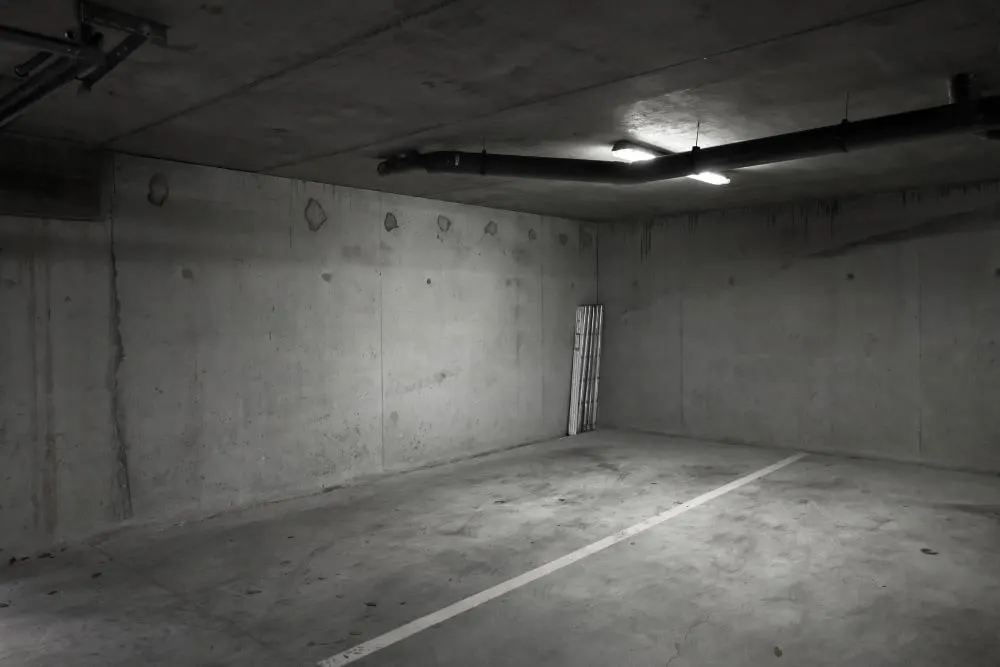Heat is no joke. There is nothing like that feeling of melting in the summer heat when you can do nothing more but sit and sweat. The problem is that we need to take shelter from the hot outdoors by staying inside, which is not pleasant if you are losing cold air to your basement.
There are ways and means of preventing your air conditioning from supplying the basement and actually getting cold air to flow through your home and cool down other rooms. There is a process of selectively closing or opening the basement door and some windows and maybe employing a vent or fan to help the ventilation system.

If you are trying to stop cold air from filtering into your basement from the house’s upper floors, then you need to close your basement door. If you are trying to circulate cold air from your basement, open the door to allow cold air to be pulled up from the basement into the rest of the house.
Close Your Basement Door in Summer
The logic here is simple and follows the statement about cold air sinking and hot air rising. Even in a balanced air pressure system, which will be discussed further in the next section, cold air from your air conditioning will passively sink.
If you are planning to hang out in your basement, then, by all means, leave the door open and enjoy!
If, however, you are trying to endure the heat of summer in the rest of your house and not just keep your washer, dryer, or boxes of Christmas decorations cool, you will need to close the door to prevent the cold air from naturally migrating out of the upper floors and into the basement.
Door at the Bottom of the Stairs
If your basement door is at the bottom of the stairs instead of the top, installing a return vent here may be worthwhile to prevent cold air from accumulating at the foot of the stairs where it does no good to anyone.

A return vent would pull that cold air from the base of the stairs and filter it back into your air conditioning system, meaning that you can transport the stubbornly sinking air to the rest of your home, where you can benefit most from it.
Balance Your Air Pressure System
Every house has an air pressure system.
In summer, when all the windows and doors are closed to prevent the expensive air conditioner-cooled air from escaping, then it is incredibly important to have the system balanced. If you don’t, then you will get unwanted air movements.
Many people think it is a good idea to close their basements vents/registers while leaving the return air vent open.
Their reasoning is that the cold air from the upper floors cannot enter the basement through the registers, but the cold basement air enters the HVAC system and gets taken upstairs.
However, what actually happens is the basement starts losing more air than it gains, creating a negative pressure system. The result is that air from upstairs and outside is sucked into the basement through any crack, gap, and opening that it can find.
Essentially, the very things you are trying to avoid (hot air from outside entering the house and cold air from upstairs being pulled into the basement) happen.
Moreover, if you completely sever the basement from the HVAC system or house air pressure system (everything closed), then your basement is not being ventilated, which causes a whole host of problems, especially if your summers are humid.
Problems With No Basement Ventilation
Basements are subject to damp issues, and ventilation is what controls moisture levels in basements and helps to prevent the propensity for damp to become a severe problem. Unfortunately, this can be slightly complicated to achieve, especially when ventilating a basement is not always as simple as opening a window.
Moisture-rich basements can readily grow mold and mildew, along with a smorgasbord of bacteria.
The moist environment is also a great nesting ground for pests of all kinds, from cockroaches to raccoons. This results in the common difficulties associated with such infestations, including unhygienic conditions from the waste produced as well as the damage frequently caused to appliances, equipment, and structure.
More than that, though, is the health risk associated with no ventilation in a basement. The conditions produced by a lack of ventilation can result in pulmonary and respiratory issues. The microbes from the organisms hosted in the basement can cause allergies, sinus problems, breathing difficulties, and coughs.
These are made worse if someone in your household suffers from a pre-existing condition such as asthma or lupus.

Open the Door and Move Cold Basement Air
By opening two or so strategic windows at the highest point in your house and then also at the lowest points possible, you can move cold basement air upwards.
By opening only these select windows, you will be creating a natural airflow. With the basement door open, you are allowing the air to flow out of the basement and into other areas of the house. The hot air leaving high up will pull cold air from downstairs.
You can enhance this system by using a fan that is directed at the higher windows to help push the hot air out of the windows and increase that pull of cold air from the basement.
You can also use a fan to move cold air out of the basement and up into the rest of the house. You need the right kind of fans, and they must be used properly; otherwise, this method won’t be effective.
The right kind of fans are window or high-velocity fans.
- Designed to fit into most double hung and slider windows (Measures approximately 13.3" x 25.5" x 6")
- Adjustable extender screen and bonus extender panel help to secure fan into larger windows (Can extend up to 37" with extenders)
- Dual blade operation with idependent electronically reversible motors allows for air intake, exhaust, or air exchange for full room circulation
- Plug in the power cord into a 120 AC Outlet. Refer to the PDF attached below in Technical Specification for User Manual.
Last update on 2024-03-27 / Affiliate links / Images from Amazon Product Advertising API
- ✅【HIGH VELOCITY AIR STREAM】Powered by 3 fan speeds, this pivoting air mover generates maximum air delivery of approximately 375 CFMs and is best for cooling the hottest spaces, circulating and...
- ✅【FUNCTIONAL DESIGN】With it's rugged construction, this pivoting blower fan is Ideal for kitchens, garages, workshops, basements, and more; the lightweight design (12 lbs.) and large carry...
- ✅【CONVENIENT FFEATURES】This powerful utility blower fan features two 120-volt grounded outlets for accessory use; the pivoting action allows you to direct the airflow right where you need it for...
- ✅【SPACE SAVING DESIGN】With an 11.3” x 14.5” footprint, and standing only 14.5 inches tall, this fan is a little bigger than a standard milk crate. The 10-foot power cord and large easy grip...
Last update on 2024-03-27 / Affiliate links / Images from Amazon Product Advertising API
Here I explained some techniques for moving cold air from the basement, but if you would like further detail and methods, check out this article on How to Move Cold Basement Air Upstairs.
Recommendation: Consult an HVAC Specialist
If you are really struggling to get the HVAC and resulting air pressure systems right in your house, the best solution would be to contact a professional.
Local professionals understand the weather in your area and know how best to set up an HVAC system to counter or work with that climate.
They can also assess your particular situation, such as considering the layout of your house or the position of your residence, as opposed to providing generic solutions which may not actually apply to your setup.
Furthermore, this is not likely to be a recurring expense. Once you know how to manage your system, if you don’t change anything (adding extractor fans/range hoods, etc.), then you can do it yourself whenever you transition into summer (or winter).
Related article: Should Basement Door Be Open or Closed During Winter


